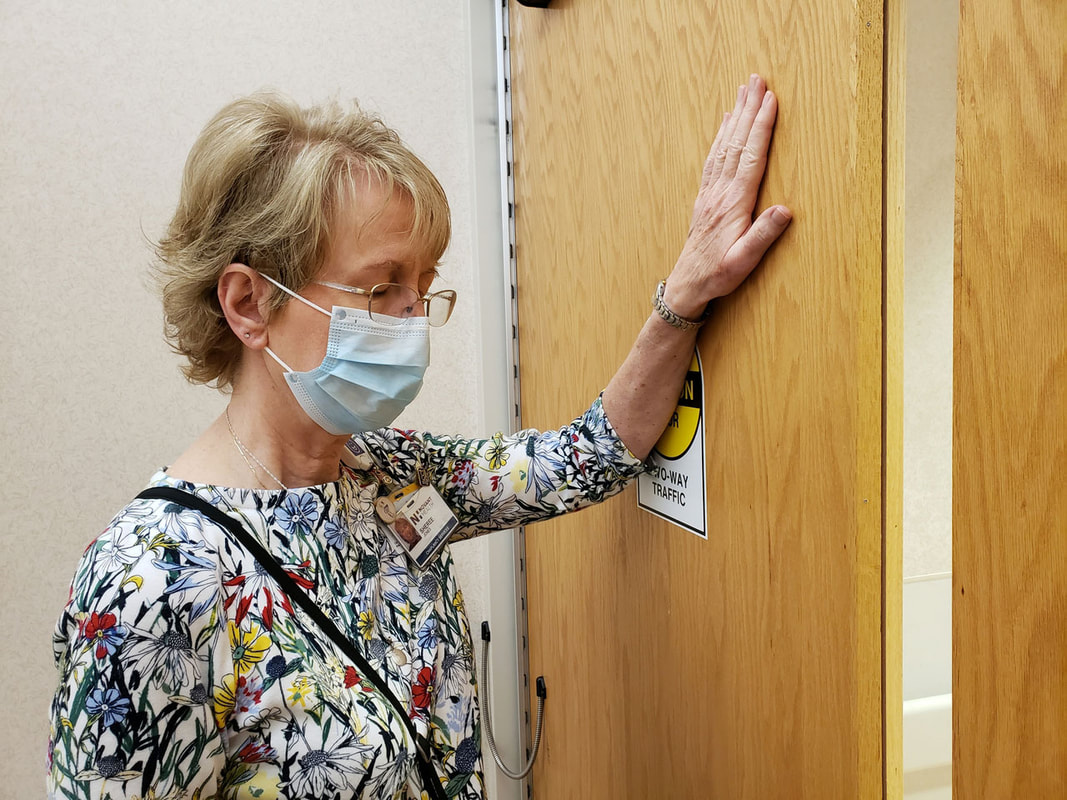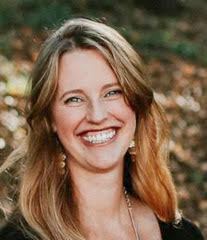|
In the current pandemic crisis, we are seeing an overwhelm of the health care system that is unlike anything we have seen in our lifetimes. The restrictions around hospitals limiting visitors (for everyone’s safety) mean that often people will be suffering, even dying, in some degree of isolation. For some there may be a nurse or chaplain that stays with them. But many will not be attended to by their family. And in kind, the family will be home without their loved one. Feelings of helplessness, anger, and overwhelming sadness will accompany this difficult experience.

IMAGE: NOVANT HEALTH
It is likely that most of us will know someone either directly or through someone close, who dies of this disease. That means we will also be coming into contact with directees who have lost loved ones in this cold and detached way. In older congregations we may see dramatic drops in members and be grieving these lonely deaths as a group. This experience of losing so many people in a way that is so outside the norm may heighten the experience of bereavement. The strong emotions that accompany grief, combined with a sense of helplessness can quickly reach the levels that we define as being traumatic. How can we help people to process through their experience in a way that helps them avoid becoming stuck? How can we help people to find comfort in the Presence of God in such trying times? How do we honor traditions that normally would comfort people with “last rites” when we cannot be physically present with the dying? Responding well to the very real and tangible losses of life around us will be part of the long term recovery process. Being intentional in our response will also help build resiliency and protect the mental health of our directees in the aftermath of this global crisis.
Different helping professions will all need to navigate their own response and how they provide care. For spiritual directors, this journey will necessitate facing theodicy, or the “why do bad things happen” question, with our directees. We will need to create space for, and perhaps provide instruction about, lament. We must allow space for tears, anger, and the heavy silence that falls when words fail. Embodied work will need higher priority.
For those of us who fill a dual role as minister/shepherd/pastor, or who consider ourselves part of an institution or congregation, attending to the communal experience will also require tender attentiveness. There is so much loss in this season for everyone. Each of us has and will experience different affects on our emotional, physical, spiritual, fiscal, and relational health. Senses of “normal” and security have been and are being threatened. There is so much grief work to be done. Finding the grief connected to losing a loved one and holding it in context of all the other losses swirling around will call for patient and precise care.
If you have not already begun to meet with directees who have lost loved ones, consider that it is likely that you will in the future. Begin to prepare yourself now, both in heart and in training, to walk alongside a level of unique grief, unknown to most of us. This is a new chapter. We are preparing the way for what spiritual direction will look like for decades to come. Discuss this with colleagues. Bring it to supervision. Perhaps the resurgence of interest in being trained as a spiritual director that we have seen over the last decade or so, was for just such a time as this.
1 Comment
|
�
SPIRITUAL DIRECTION BLOG
From 2012-2020, this blog space explored expanding understanding and best practices for holistic health in the context of spiritual direction.
This website serves as a historical mark of work the Institute conducted prior to 2022. This website is no longer updated. Archives
September 2020
Categories
All
|


 RSS Feed
RSS Feed
